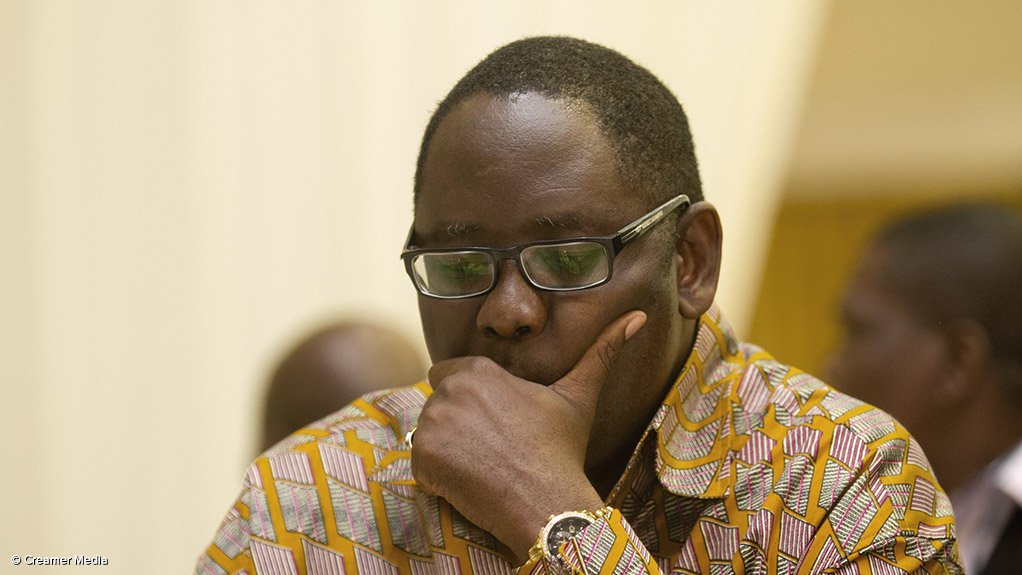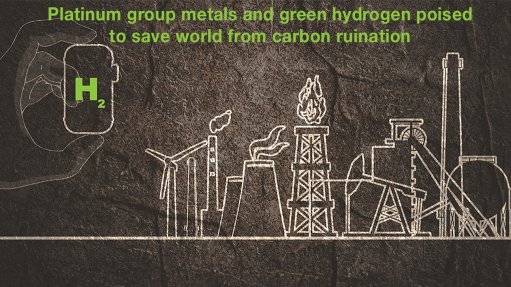S Africa is a sinking ship, says Vavi
President Jacob Zuma’s State of the Nation Address (Sona) showed a breakdown of trust between government and the population of South Africa, according to former Congress of South Africa Trade Union (Cosatu) general secretary Zwelinzima Vavi
“Yesterday’s Sona address offered the President another opportunity to rebuild trust between government and the population, and in my view, he dramatically failed to inspire the nation,” he said at a post-Sona panel discussion at Wits School of Business on Friday.
Vavi stressed that South Africa was going through the darkest hour in its 22 years of democracy and that, politically and economically, South Africa was in a crisis.
He compared the government to the ill-fated Titanic, noting that the country was “a ship in a deep ocean on a dark night, captained by a blindfolded leader, headed towards an iceberg”.
“If I was an investor waiting to be inspired to spend R1.3-trillion . . . I would not want to spend a single cent more on the South African economy, which has no plan to fix the current state of affairs.”
Vavi added that the Reserve Bank and the International Monetary Fund noted that South Africa’s economic growth was going to be less than 1% in 2016.
“My overall view is that the crisis remains and the disaster has deepened. South Africa has been tranquilised by unkept promises. Judge people by their actions and you will never be fooled by their words,” he said.
Vavi described Zuma’s speech as “boring” and “repetitive”, stressing that it demonstrated policy incoherence.
“Government no longer knows its ideological stance. It doesn’t know whether it is speaking from the left or the right. One moment Zuma addressed the man on the street, the next he was speaking to investors. If I was one of the 8.3-million unemployed South Africans, I would feel hopeless under the current circumstances,” he said.
Local radio station PowerFM MD Andile Khumalo reiterated Vavi’s sentiments, also noting that big banks would not advise their clients to invest in a country where they would get 0.7% return.
“My biggest disappointment when listening to the Sona was that it felt like the South African government lives in another world. We were listening to a government that was not on the same page as the citizens of the country,” said Kumalo.
However, political analyst Professor Susan Booysen said that the President’s speech showed evidence that times were changing and that there were signals in his address that he was aware of the challenges the country faced.
“He seemed to have said that he had heard the critics, including big business, speaking out in a series of engagements. He had [also] heard Cosatu and labour in terms of tax amendments.”
She added, however, that the African National Congress no longer knew how to relate to its President, noting that she had heard from “good sources” that Zuma would be allowed to see out his term, but that he had been told “not to push his luck”.
Also speaking at the post-Sona briefing, University of Pretoria political science lecturer Sithembile Mbete pointed out that, while 45 minutes of Zuma’s speech was about the economy, there was still very little information detailing specific numbers, facts and figures.
“The Auditor General said last year that there was R25.5-billion of irregular spending, an improvement on the previous year. But how much of that improvement comes from the measures that were set in place in 2013 that the President responded to?” she queried.
Mbete added that hundreds of millions of rands were spent on debt repayment interest every day, but that there was no mention of the specific amount that the country spent on debt repayment.
“Those numbers are there, [so] tell us those numbers and why you are trying to avoid a ratings downgrade,” she said.
Mbete added that opposition parties were not united strategically or tactically and that opposition parties the Congress of the People and the Economic Freedom Fighters made their point about how they viewed the illegitimacy of the President by walking out of Parliament.
“A powerful message would have been if the whole opposition walked out,” she said.
Comments
Press Office
Announcements
What's On
Subscribe to improve your user experience...
Option 1 (equivalent of R125 a month):
Receive a weekly copy of Creamer Media's Engineering News & Mining Weekly magazine
(print copy for those in South Africa and e-magazine for those outside of South Africa)
Receive daily email newsletters
Access to full search results
Access archive of magazine back copies
Access to Projects in Progress
Access to ONE Research Report of your choice in PDF format
Option 2 (equivalent of R375 a month):
All benefits from Option 1
PLUS
Access to Creamer Media's Research Channel Africa for ALL Research Reports, in PDF format, on various industrial and mining sectors
including Electricity; Water; Energy Transition; Hydrogen; Roads, Rail and Ports; Coal; Gold; Platinum; Battery Metals; etc.
Already a subscriber?
Forgotten your password?
Receive weekly copy of Creamer Media's Engineering News & Mining Weekly magazine (print copy for those in South Africa and e-magazine for those outside of South Africa)
➕
Recieve daily email newsletters
➕
Access to full search results
➕
Access archive of magazine back copies
➕
Access to Projects in Progress
➕
Access to ONE Research Report of your choice in PDF format
RESEARCH CHANNEL AFRICA
R4500 (equivalent of R375 a month)
SUBSCRIBEAll benefits from Option 1
➕
Access to Creamer Media's Research Channel Africa for ALL Research Reports on various industrial and mining sectors, in PDF format, including on:
Electricity
➕
Water
➕
Energy Transition
➕
Hydrogen
➕
Roads, Rail and Ports
➕
Coal
➕
Gold
➕
Platinum
➕
Battery Metals
➕
etc.
Receive all benefits from Option 1 or Option 2 delivered to numerous people at your company
➕
Multiple User names and Passwords for simultaneous log-ins
➕
Intranet integration access to all in your organisation





















